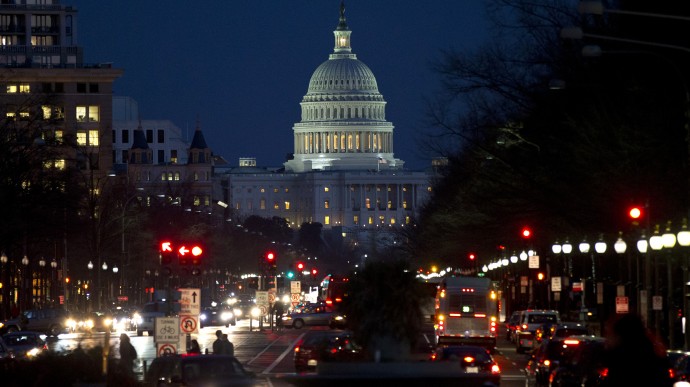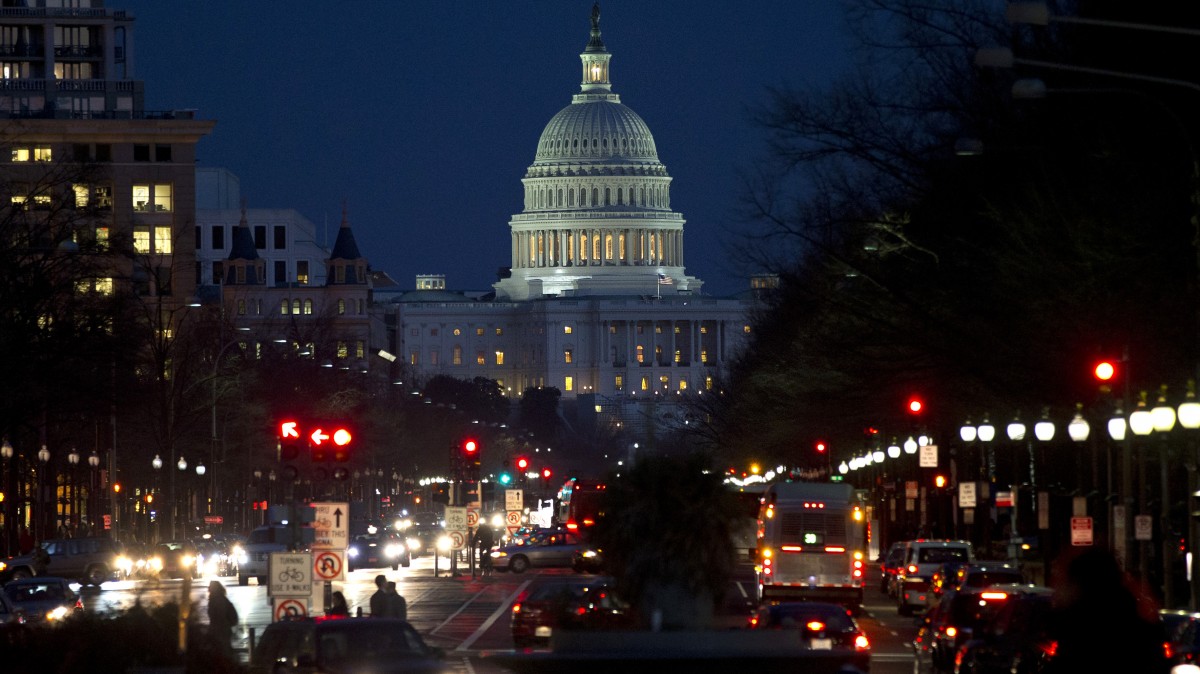
(MintPress) – Optimism of an eleventh hour deal to avoid the “fiscal cliff” is fading fast in Washington. With the U.S. Treasury hastily stepping in with emergency measures to temporarily meet U.S. debts if a deal can’t be made by Dec. 31, Washington politics has never looked so weak. The Senate and the House of Representatives recognizes that a deal will need to be struck, but they have no idea how to proceed.
President Barack Obama will resume stalled talks with GOP and House Republicans to avert Jan. 1 looming tax hikes and government spending cuts. The Christmas break should have given members of the House and Senate time to reflect on the dismal failure of Republican Speaker of the House John Boehner’s “Plan B” bill of tax increases for people earning $ 1 million and more. With time running out and GOP minds entrenched on “no compromise” to tax increases on the wealthiest, what will America wake up to in the New Year?
The truth is that we don’t have a definite answer. If lawmakers cannot find a solution, we know that all taxpayers will see significant cuts to their pay and tax rebates. But how this will affect the economy, both economic analysts’ and investment markets leaders’ views seem to be at odds, too.
The Congressional Budget Office gloomily predicts that $536 billion in tax increases and spending cuts will force the U.S. economy back into recession and increase unemployment to 9.1 percent. Other economists who are watching the stock market’s reactions predict a less gloomy scenario of a fall in growth, but they stop short of the end of the world.
Nelson D. Schwartz addressed the issue in a recent New York Times article:
“Michelle Meyer, senior United States economist at Bank of America Merrill Lynch, said there is a 40 percent chance of a ‘bungee-jump over the fiscal cliff,’ with Congress failing to act until after Jan 1, but eventually averting the full package of tax increases and spending cuts by mid January. If that were to happen, she predicts a steep sell off on Wall Street, which would quickly force political leaders compromise.
“Overall, Meyer estimates that the economy will grow by just 1 percent, well below the 3.1 percent pace in the third quarter of 2012.”
Other economists agree with Meyer’s analysis that sooner or later a deal will be struck. Dean Baker, co-director of the Center for Economic and Policy Research, is appalled by the rhetoric of fear. He criticizes the so-called fiscal cliff threat as a myth.
“This idea that if we do not get a deal by the end of the year we will see the economy collapse and go into recession, that is totally dishonest. The basis for this is that we don’t have a deal all year—the fact that you do not have a deal Dec. 31 does not mean that you do not get a deal by Dec. 31, 2013.”
In the short term, America will wake up to a New Year’s Day hangover with no miracle cure in sight. The first bitter pill low-income earners will swallow is the Social Security payroll taxes, which are set to increase on Jan. 1, so workers will feel a 2 percent cut to take home pay. Taxpayers earning between $50,000 and $75,000 would see a tax increase of $2,400 and those making $75,000-$100,000 would see a tax hike of around $3,700 per year. As most people are already struggling to meet the rising cost of living, a tax increase will force many families to tighten their belts. However, for low-income families who are already living on the edge, what will this change mean to them? With welfare, Medicare and education all part of the federal spending cuts, there will be no safety net to help struggling families.
The failure of Washington to reach a compromise and negotiate a deal will hurt the most vulnerable, such as the elderly, veterans and low-income families, as programs like the child tax credit, welfare benefits and VA health are all under threat. So the question is: How do you prepare for this looming crisis? And can the U.S. take lessons from other countries already experiencing this crisis?
Countries currently living under ‘fiscal cliff’ economics
One country in particular has been living with similar economic conditions of the “fiscal cliff” for two years. In Britain, a conservative government under the leadership of Prime Minister David Cameron imposed severe austerity measures to cut the deficit using economics similar to the U.S. “fiscal cliff” problem, that of high taxes and wholesale spending cuts across welfare, pensions and National Health Service. The result of such stringent measures is that Britain’s economy is flatlining — now at 0 percent growth — and the economy may dip again starting in January 2013.
Cameron is convinced that the only way to reduce the deficit is to ease the burden of taxes on the wealthiest Britons and impose sweeping cuts to welfare and health programs. Sound familiar? The only difference is that the U.K. government control of public spending has yet to produce results. Consumer confidence is at an all time low, although unemployment is down to 2.51 million — there are just under 6 million people unable to find enough working hours to support families without subsidy, with high cost of living, stagnant housing markets and foreign investments going to U.S. markets — the outlook is bleak.
At the beginning of 2012, the U.K. economy returned to a second recession after shrinking 0.2 percent in consecutive quarters, in January 2013 economic analysts are speculating another quarter of 0 percent growth. Even with these depressing economic forecasts, the British government has continued the policy of welfare cuts. It has created real poverty for low-income families where families are relying on charity for food parcels and capped benefits to supplement low earnings.
British charities are struggling to meet the growing demand from working families struggling to pay taxes and rent/mortgage as well as increases to the cost of living.
Julia Unwin, chief executive of the Joseph Rowntree Foundation, U.K., said the charity was embarking on a major program to develop “anti-poverty strategies” for the whole of the U.K. and said she hoped 2013 would be a year of “real change and improvement.”
Unwin wrote, “I sense a growing outrage – food banks open across the country, teachers report children coming to school hungry, advice services and local authorities prepare for the risks attached to welfare reform, there is evidence of a rising number of people sleeping rough and destitution is reported with increasing frequency.
“We need to recognize the grim reality of grinding poverty and destitution. We need to understand what is really happening, make sure it cannot be ignored and point consistently, creatively and credibly to the things which can be done.”
Britain’s policy of high taxation and capped spending on welfare has not produced two quarters of growth — let alone two years of growth the U.S. has seen under President Obama. It has pushed many middle-class families on the edge where they now need support from charities to cover the basics of food and heating.
Looking at the British experiment, can the U.S. really afford to delay the deal? Or worse, not make any deal at all? Americans have worked hard to kick-start the economy; it seems ludicrous to allow entrenched political ideals to take away all the hard fought for gains.
It’s sobering to think that if the U.S. Senate and the House of Representatives cannot resolve the issue, they risk turning the economy from growth to recession. And while there are many things to admire about the British, their economy isn’t one of them.


